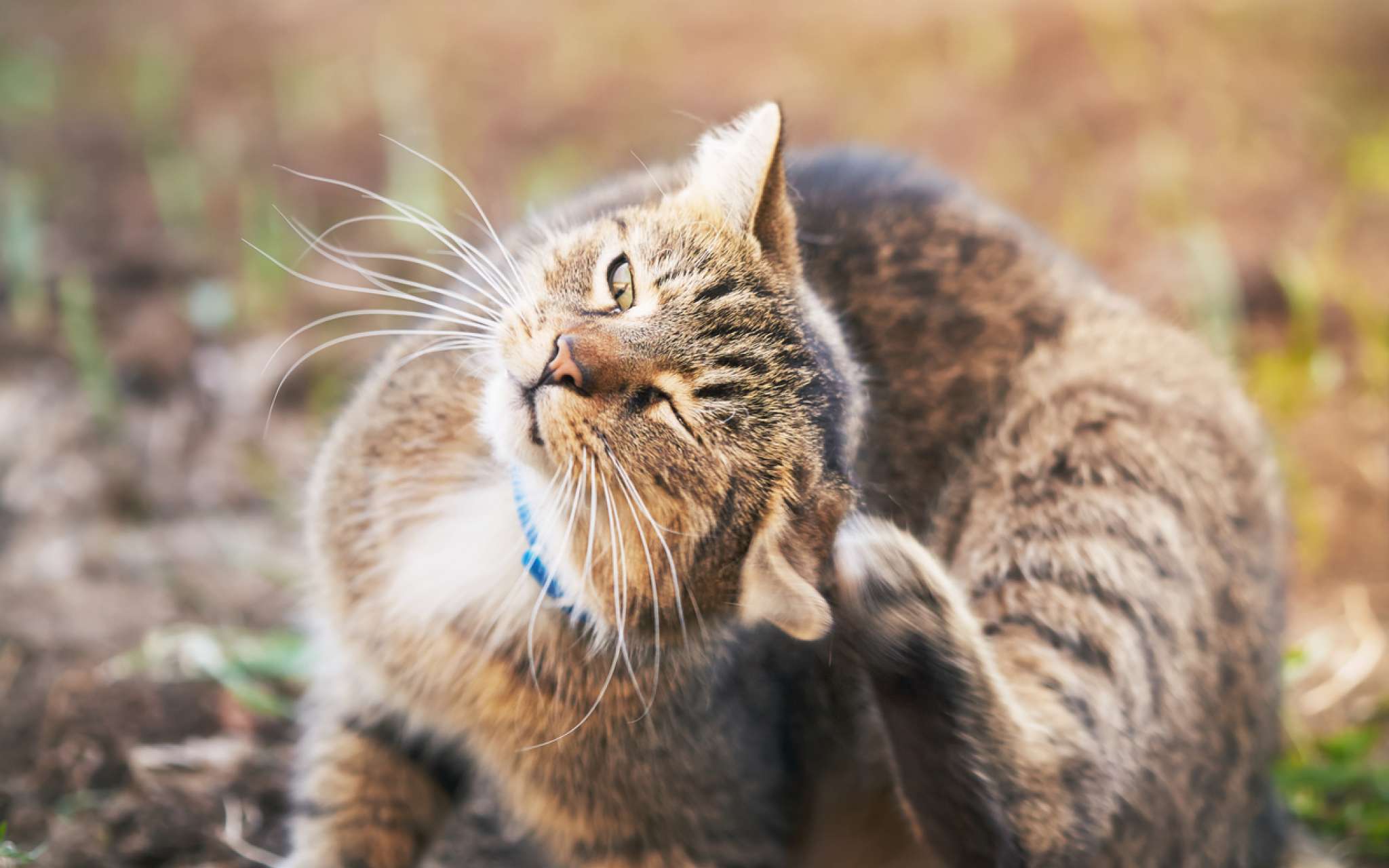Do you think it’s possible for your cat to have ear infections?Do you know how an ear infection might have occurred in your faithful partner’s ears?What are the symptoms, how is it treated and what consequences can it have?
If you want to know everything about otitis in cats, read this Animal Expert article carefully and help your pet regain health.
- Otitis is the inflammation of the epithelium that covers the ear canal and the pinna.
- This inflammation usually causes pain and temporary hearing loss.
- Among other things.
- In addition to being accompanied by many other symptoms that make it more easily identifiable and that we will explain later.
This problem usually occurs when felines have weak tusks for some reason, it has been proven that the times of year when otitis occurs are spring and summer due to the increase in temperature and humidity of the environment.The contagion of certain possible otitis agents, such as mites, occurs through direct contact with an infested area or animal, in shelters, in areas where there are controlled cat colonies and in general in any area where large numbers of cats coexist, this direct contact contagion occurs very often, as the constant Control of each and every aspect of their health is always very difficult , otitis can occur without contagion, which is secondary to trauma or bacterial or fungal infection by foreign body, among other causes.
There are different types of ear infections depending on their cause and the area of the ear that affects them, depending on the affected area we can classify it into:
First of all it is worth mentioning that in general there is less predisposition in cats than in dogs, but, in reality, any individual can suffer otitis and in domestic cats, we find that those that are most predisposed are those that are between them.and two years.
In addition to long-haired specimens, as they usually have a lot of hair on their ears, they also have more ease of otitis because the hairs on their ears retain more dirt and moisture.Cats who spend a lot of time outdoors are at increased risk of ear disease, including otitis, so it is very important to periodically check their ear canals.They are also very prone to this ear problem, but secondaryly, individuals who have very weak defenses due to another major problem.
Otitis can be caused by several things, such as foreign bodies lodged in the ear canal, bacteria, fungi (yeasts), external parasites such as mites and lesions in the area.
Here are some causes of this disease
Other diseases and problems that lead to secondary ear infections: Secondary ear infection usually occurs normally from what we mentioned above, but it can also result from other diseases that the feline already suffers from and therefore be a symptom.
The signs and symptoms of our feline in the case of otitis will depend and vary, especially in the degree of its intensity, the cause of otitis. Symptoms we may recognize include:
It is essential for the health outcome of our companion that as soon as we detect any of these symptoms we take it to the veterinarian to diagnose it and indicate the appropriate treatment.
Here are some tips and remedies to prevent and treat otitis in cats
There are drops or cleaning products for the ears, but because cats are very sensitive to drugs and products in general, whether chemical or natural, we must use one that has been expressly prescribed by our veterinarian and never the one we see in the store. animals and we think it’s good. It is essential never to use a product for dogs that is not suitable for cats, since this type of substances that cause irritation are also one of the main causes of otitis in our cats. Also, in the case of long-haired specimens, the vet may be asked to trim the hairs from the ears from time to time to avoid accumulation of dirt.
If all this has no effect or from the beginning the vet is the only solution, a surgical treatment will be performed.
It should be noted that when optical drops of any kind are applied to an animal’s ear, the animal will then move the head to eject it into the ear, as it is a nuisance for him, but it is very important to continue treatment.and let them shake their heads to more easily expel dirt.In addition, even if the ear infection appears cured, treatment should be terminated as directed by the specialist and should last as long as you tell us to.extend another week, after which otitis apparently heals, to make sure otitis doesn’t come back easily.
This article is for informational purposes only, in Animal Expert.com.br we cannot prescribe veterinary treatments or make any kind of diagnosis.We suggest that you take your pet to the vet in case of any ailment or discomfort.
If you would like to read articles similar to, we recommend that you visit our Other Health Problems section.

